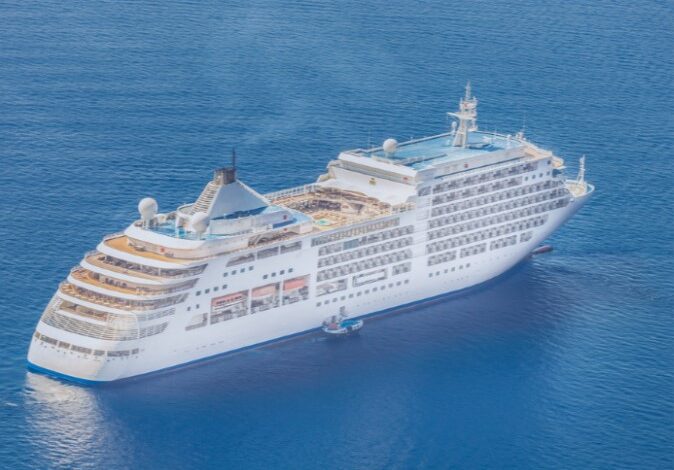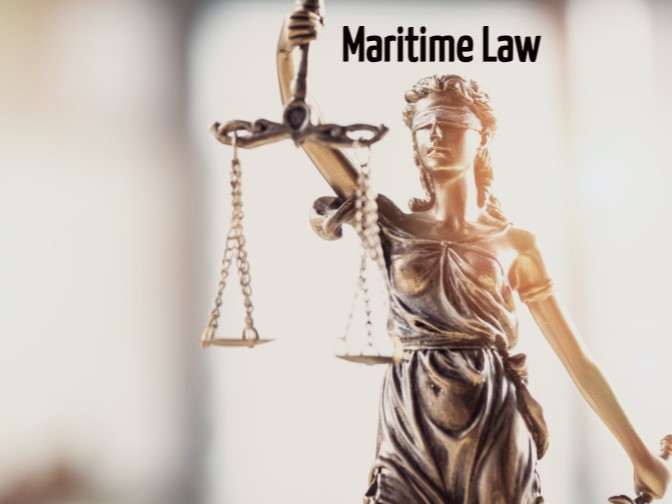
Table of Contents
Passenger Injury Claims often become a point of concern when setting sail for a cruise, which for many, symbolizes a peak annual experience filled with adventure, relaxation, and opulence. Yet, beneath the shimmering sun decks and under the canopy of starry skies, there persists a pertinent query in the minds of numerous voyagers: in the event of an accident, what is the extent of a cruise ship’s legal accountability for passenger injuries? This article explores seven crucial facts regarding injuries sustained on cruise ships and the intricate legal framework that governs them.
1. Understanding the Scope of Maritime Law
Maritime law is an intricate tapestry that governs nautical issues and private maritime disputes. When it comes to passenger injuries, maritime law is the compass that guides the course of legal responsibility and compensation.
When it comes to the high seas, the laws governing the vast waters differ significantly from those we abide by on land. Maritime law, also known as admiralty law, is a specialized field of law that deals with nautical issues and private maritime disputes. Its scope is comprehensive, covering a wide array of matters from maritime contracts and torts to injuries and offenses that occur on open water.
The Jurisdiction of Maritime Law
Maritime law typically applies to incidents that take place on international waters. However, its reach can extend to any navigable waterway, including rivers and lakes that cross international borders or connect with the sea. The complexities arise when the waters in question fall within the territorial jurisdiction of a particular country.
What Maritime Law Encompasses
- Navigation and Shipping: Rules governing the passage of vessels, shipping routes, and rights of way.
- Maritime Commerce: Laws dealing with maritime commerce include the carriage of goods and passengers.
- Marine Salvage and Treasure Salvage: Concerns the recovery of ships and cargo after shipwrecks and the compensation entitled to those who aid in their recovery.
- Piracy: Defines piracy under international law and outlines the framework for prosecution and punishment.
- Marine Pollution: Regulations to control pollution caused by ships and to penalize violations.
- Maritime Liens and Mortgages: Concerns the prioritization of claims against a vessel.
- Maritime Injuries: Includes personal injury and wrongful death claims of seamen, passengers, and others due to maritime accidents.
Maritime Contracts and Torts
Maritime law also encompasses various contracts and torts. Contracts might include those for the carriage of goods or charters of vessels, whereas torts could cover a range of wrongful acts, from personal injury to environmental damage.
Cruise Ship Passenger Injuries under Maritime Law
In the context of passenger injuries on cruise ships, maritime law comes into play in determining liability and damages. The legal principles that govern whether a cruise ship is responsible for a passenger’s injuries are embedded in this domain. This includes evaluating the duty of care owed by the cruise line to the passenger and assessing whether any breach of that duty has occurred.
International and Domestic Maritime Law
Maritime law can be international, as set by conventions and treaties, or domestic, as individual nations legislate their own laws to handle maritime issues within their jurisdiction. When an incident involves a cruise ship, the applicable law can be determined by various factors such as the flag the ship sails under, the location of the incident, and the nationality of the passenger.
The Legal Process for Maritime Claims
The legal process for maritime claims often requires navigating through a maze of domestic and international regulations, conventions, and treaties. For passengers seeking to understand their rights or pursue a claim, it is often necessary to consult with a lawyer who is an expert in maritime law to ensure that they take the appropriate steps and file within the designated time frames.
Maritime Law’s Evolving Nature
Like the tides, maritime law is not static; it changes and adapts. As the shipping industry evolves with new technologies and as international norms shift, maritime laws are also updated to reflect these changes. It’s a dynamic field that requires constant attention to remain informed.
In summary, understanding the scope of maritime law is crucial for anyone involved in maritime activities, especially for passengers on cruise ships who might face the unfortunate event of an injury. With its broad coverage and intricate nuances, maritime law is the backbone of legal order on the seas.
2. The Duty of Care Defined
Cruise lines have a defined duty of care to their passengers. This includes providing a safe environment, competent staff, and well-maintained equipment. Failure in any of these domains could render a cruise ship liable for passenger injuries.
Passenger Injury Claims are an essential consideration for cruise-goers expecting a departure from the everyday into a world of amenities and luxurious comforts. Integral to their unforgettable experience is the expectation of safety and dependability, legally enshrined in the principle of “duty of care.” This cornerstone of maritime law obligates cruise lines to prioritize their passengers’ welfare, ensuring that the dream of a worry-free holiday on the seas is upheld.
What Constitutes Duty of Care?
For cruise lines, the duty of care is multi-faceted. It extends beyond the basics of safe passage and touches every aspect of a passenger’s journey. Here’s what it encompasses:
- Providing a Safe Environment: This implies that the ship itself should be free of hazards. Everything from the design of the deck to the security protocols in place falls under this category.
- Competent Staff: The crew, including everyone from the captain to the service staff, must not only be adequately trained but also demonstrate professionalism and competence in their respective roles.
- Well-Maintained Equipment: All machinery and equipment on board must be in good working order. This includes the engines, navigation systems, and even the recreational facilities.
The Implications of Failing Duty of Care
Should a cruise line falter in its duty of care, the consequences can be grave. A slip on a wet deck, an injury from faulty gym equipment, or an accident due to poor navigation — these are examples of what might happen if a cruise line does not live up to the expected standards. Such failures can lead to them being held legally responsible for passenger injuries.
Liability for Breaches of Duty of Care
The threshold for liability is determined by a breach of the expected standard of care. If a passenger is injured because the cruise line did not fulfill its obligations, the company could be deemed negligent. This negligence is what opens the door to liability and, potentially, to the awarding of damages to the injured party.
Navigating the Complexities
Understanding and proving a breach of duty can be complex. It requires a thorough investigation to establish whether the cruise line acted reasonably in its efforts to protect passengers. Documentation of the incident, witness testimonies, and expert opinions often play pivotal roles in such cases.
In summary, the duty of care is a legal bond between cruise lines and their passengers, ensuring that the highest safety standards are met. It’s a promise of vigilance, where any dereliction can lead to legal repercussions and a breach of trust that can shake the confidence of travelers in their chosen cruise line.

3. Common Causes of Passenger Injury Claims
While the vast ocean vistas and the allure of exotic destinations paint an idyllic picture of cruise holidays, it’s not without its share of risks. Passenger injuries aboard cruise ships, though relatively rare, can mar the experience and raise serious concerns about safety standards. Understanding these common causes can help passengers stay vigilant and cruise lines improve safety measures.
- Slip and Fall Accidents. Slip and fall incidents are among the most common accidents on cruise ships. Wet decks, recently cleaned floors without proper signage, or even a rogue wave can turn a leisurely stroll into a perilous situation.
- Foodborne Illnesses. Cruises are famous for their abundant dining options, but this comes with the risk of food poisoning. With thousands of meals prepared daily, even minor lapses in food safety can affect numerous passengers.
- Recreational Activity Injuries. Onboard activities ranging from rock climbing walls to water slides are thrilling but not without danger. Injuries from these activities, if not properly supervised or maintained, can be a significant source of liability for cruise lines.
- Equipment Failure. Malfunctioning equipment, whether it’s an elevator or a fitness machine, can lead to unexpected injuries. Regular maintenance is crucial to prevent such mishaps.
- Navigation and Weather-Related Incidents. Severe weather conditions and navigational errors can lead to situations where passengers are injured due to the ship’s movement, like being thrown against a wall or falling due to a sharp turn.
- Tender Boat Accidents. Transferring passengers from ship to shore via tender boats can be risky, especially in choppy waters, leading to falls or injuries while embarking or disembarking.
- Poorly Maintained Facilities. A lack of maintenance in guest areas such as swimming pools, balconies, and cabins can lead to accidents. Rusted railings, broken tiles, or faulty furniture all pose risks.
- Crew Negligence. The actions or inactions of the crew, from mishandling luggage to providing incorrect instructions during an emergency, can be a direct cause of injury to passengers.
- Physical Assaults. Though not common, there are instances of physical assault between passengers or by crew members, leading to serious injuries and legal complications for the cruise line.
- Medical Malpractice. Inadequate medical care provided by the ship’s medical personnel can exacerbate injuries or lead to additional health complications for passengers.
- Understanding and Mitigation. Recognizing these potential hazards is the first step in preventing them. For cruise lines, it means rigorous training, stringent maintenance routines, and a culture of safety that permeates every level of operation. For passengers, it means being aware of their surroundings and taking personal precautions to avoid injury.
Passenger Injury Claims should not overshadow the anticipation of fun and relaxation that defines a cruise adventure. It is the shared responsibility of both cruise operators and passengers to collaborate in creating a voyage that is as safe as it is enjoyable, thereby minimizing the worry of potential injuries.
Maritime Law: 7 Vital Insights on Passenger Injury Claims
4. The Conundrum of Negligence: A Crucial Element in Passenger Injury Claims
For a cruise ship to be held legally responsible for an injury, there must be proof of negligence. This implies that the cruise line failed to act with reasonable care, leading to the injury in question.
The Conundrum of Negligence: A Crucial Element in Passenger Injury Claims
Navigating the complex waters of passenger injury claims aboard cruise ships requires a deep understanding of negligence and its role in maritime law. The idyllic picture painted by cruise brochures often omits the less glamorous side of sea voyages – the possibility of injuries and the subsequent legal battles that may ensue.
Understanding Negligence in Maritime Context
Negligence, a term that echoes ominously through the corridors of law, is the cornerstone of liability in many passenger injury claims. It refers to a failure to take reasonable care to avoid causing injury or loss to another person. In the context of cruise ships, this means that the operator may be held responsible if it’s proven that they did not do what a reasonable entity would do under similar circumstances.
When Does Negligence Occur on Cruise Ships?
Negligence can manifest in various forms, such as:
- Lack of Proper Maintenance: If a passenger is injured due to faulty equipment or dilapidated facilities, the cruise line may be found negligent.
- Inadequate Staff Training: Crew members unprepared to deal with emergencies or daily operations can lead to passenger harm.
- Insufficient Security Measures: Passengers expect a safe environment. Any harm resulting from security lapses could be a basis for claims.
The Burden of Proof
In the aftermath of an incident, the burden of proof lies with the injured party. It is up to the passenger, often with the aid of legal counsel, to prove that the cruise line’s negligence directly caused their injury. This process involves gathering evidence, such as maintenance records, surveillance footage, and witness statements.
Navigating the Legal Tides
Navigating these legal waters isn’t for the faint of heart. Cruise ticket contracts often include clauses that aim to limit the liability of the cruise line, presenting additional hurdles for passengers. The complexity is further compounded when incidents occur in international waters, where different laws and conventions might apply.
Seeking Legal Assistance
Given the intricacies of maritime law, seeking professional legal assistance becomes not just a choice but a necessity for passengers pursuing injury claims. A lawyer with expertise in this field can provide invaluable guidance, from interpreting the fine print on ticket contracts to representing the injured party in court.
The Role of International Regulations
International conventions, such as the Athens Convention relating to the Carriage of Passengers and their Luggage by Sea, play a pivotal role in shaping the rights and responsibilities of maritime travelers and operators.
The Implications for Cruise Lines
For cruise operators, the implications are clear: there is a high price for negligence. It affects their reputation, passenger trust, and, ultimately, their financial bottom line through compensation payouts and increased insurance premiums.
The Path to Resolution
Resolving a negligence claim can be a lengthy process, involving negotiations, mediations, or even trials. Successful claims often result in passengers receiving compensation for medical expenses, lost wages, and other damages.
Conclusion: A Call for Diligence
The conundrum of negligence serves as a reminder of the duty of care that cruise lines owe to their passengers. For travelers, it underscores the need for vigilance and the right to seek justice should their safety be compromised. As the cruise industry sails forward, the focus on preventing negligence and ensuring passenger safety must remain paramount.
For those who find themselves navigating the choppy waters of passenger injury claims, remember that while the journey may be complex, the path to justice, though sometimes winding, is there to be charted.
Have further questions or need assistance with a passenger injury claims? Knowledge is power, and legal expertise is your compass.
5. The Legal Process and Passenger Rights
Navigating the legal process and understanding passenger rights in the event of an injury on a cruise ship can be daunting. Here’s an overview to provide clarity on what passengers should know:
The Legal Process
- Incident Reporting: Passengers must report any injuries or accidents to the cruise staff immediately. Documentation is crucial, as it serves as the first piece of evidence in any legal proceedings.
- Medical Assessment: Seeking medical attention not only ensures proper care but also provides medical records that serve as evidence of the injuries sustained.
- Gathering Evidence: If possible, take photographs of the accident scene and collect contact information from any witnesses. This information may support your case later on.
- Understanding the Ticket Contract: The ticket contract often outlines important legal information, including statutes of limitations for filing injury claims, which are typically shorter for cruise lines than for other personal injury claims.
- Consulting a Lawyer: A maritime lawyer can offer guidance through the complexities of maritime law and help protect your rights throughout the legal process.
- Filing a Claim: If the cruise line is at fault, your attorney will help you file a claim. This must usually be done within a year of the incident, but it’s best to act as soon as possible.
- Negotiations: Many claims are settled outside of court. Your lawyer will negotiate with the cruise line’s legal team to reach a compensation agreement.
- Litigation: If a settlement cannot be reached, the case may go to trial. In court, a judge or jury will determine the cruise line’s liability and the compensation due.
Passenger Rights
- Right to Safety: Passengers have the right to a safe environment on board the ship. This includes proper maintenance of the vessel and its amenities.
- Right to Information: Passengers should be informed of all safety procedures and any potential dangers that may exist on the ship.
- Right to Care: In the event of an injury, passengers have the right to receive appropriate and prompt medical attention.
- Right to Fair Treatment: Passengers should be treated without discrimination, and with fairness by the cruise line, especially following an incident.
- Right to Legal Recourse: If passengers are injured due to the cruise line’s negligence, they have the right to seek compensation through legal channels.
- Right to Privacy: Passengers have the right to confidentiality regarding their medical records and personal information during the legal process.
Comprehending the intricacies of passenger injury claims is crucial for individuals who have endured harm aboard a cruise liner. It is highly advised to seek legal counsel to adeptly traverse the complexities of this process. Doing so guarantees that the legal rights of the harmed passengers are protected and facilitates the acquisition of any rightful compensation.
6. Provisions and Limitations in Ticket Contracts
When planning a cruise, passengers typically focus on itineraries, amenities, and activities, often overlooking the fine print of their ticket contracts. However, these contracts play a pivotal role in the event of passenger injuries, as they outline both the provisions for care and the limitations of the cruise line’s liability. Here’s what you should know:
Provisions in Ticket Contracts
- Medical Care: Ticket contracts usually contain clauses about the type and extent of medical care available onboard and the passenger’s right to receive it.
- Notice Requirements: There are often strict timelines for notifying the cruise line of an injury, which are essential for maintaining the right to pursue a claim.
- Statute of Limitations: The contract may shorten the statute of limitations for filing a lawsuit, often to one year from the date of injury, which is less than many land-based statutes of limitations.
- Jurisdiction: Ticket contracts generally specify where a lawsuit can be filed, which is often in a location favorable to the cruise line, such as where their headquarters are or where the ship is registered.
- Venue Clauses: These designate the specific court where disputes must be brought and can significantly impact the convenience and cost for a passenger seeking legal recourse.
Limitations in Ticket Contracts
- Liability Caps: Some contracts may limit the amount of money a cruise line can be held liable for, especially for non-physical claims such as emotional distress.
- Exemptions for Certain Injuries: Certain types of injuries may be excluded from liability, such as those resulting from acts of nature or those occurring off the ship on third-party excursions.
- Loss of Valuables: There are often limitations on the cruise line’s liability for lost or stolen items unless they are deposited with the ship for safekeeping.
- Employee Conduct: Provisions might limit liability for the actions of the cruise line’s employees, provided they were not acting within the scope of their employment.
- Arbitration Clauses: Some contracts require mandatory arbitration for disputes, which can limit a passenger’s right to a jury trial and appeal.
- Class Action Waivers: Passengers may be barred from participating in class-action lawsuits against the cruise line, having to pursue claims individually.
- Ticket Non-Transferability: Tickets are typically non-transferable, which means that only the person named on the ticket can make claims regarding its provisions.
It is imperative for passengers to read and understand their ticket contracts, as these are binding legal documents. They should particularly note any provisions or limitations that could affect their rights and responsibilities. Consulting with a maritime law attorney can help clarify these terms and prepare passengers in case any legal issues arise during or after their cruise.

7. Seeking Professional Legal Assistance
In the wake of a cruise ship injury, passengers may find themselves navigating a complex legal terrain, where the expertise of a professional attorney becomes invaluable. Seeking professional legal assistance is not just about building a case; it’s about understanding the intricate laws that govern maritime incidents and passenger rights. Here’s why legal assistance is critical:
Understanding of Maritime Law
Maritime law is a specialized field with its own rules and precedents. Attorneys with experience in this area are better equipped to interpret these laws and apply them effectively to your situation.
Assessing the Validity of Claims
A seasoned lawyer can evaluate the specifics of your case to determine the validity of your claim and the potential for compensation.
Negotiating with Cruise Lines
Legal professionals who regularly deal with cruise lines understand their tactics and have strategies to negotiate fair settlements.
Managing Timelines and Deadlines
Maritime law includes strict deadlines for reporting injuries and filing claims. An attorney ensures these critical deadlines are met, safeguarding your right to pursue legal action.
Representation in Court
If your case goes to trial, a lawyer with maritime expertise can represent you in court, presenting your case clearly and effectively to secure the best possible outcome.
Maximizing Compensation
An attorney can help identify all possible damages you may be entitled to, from medical expenses and lost wages to pain and suffering, ensuring you seek the maximum compensation available.
Handling Complex Jurisdiction Issues
Cruise injury cases often involve complex jurisdictional questions, such as where to file a lawsuit. Legal professionals navigate these issues to file your claim in the proper venue.
Guidance Through Settlements
A lawyer can provide counsel on the fairness of a settlement offer, ensuring you make an informed decision about whether to accept or continue negotiations.
Addressing International Concerns
For cruises that travel through international waters or to foreign ports, an attorney with international maritime knowledge is crucial to manage any legal implications.
Peace of Mind
Perhaps most importantly, having professional legal assistance provides peace of mind, allowing you to focus on recovery while an expert handles the legal burdens.
How to Find the Right Maritime Attorney
- Research: Look for attorneys who specialize in maritime law and have experience with cruise ship injury cases.
- Referrals: Ask for referrals from those who have had similar legal needs or contact maritime law associations for recommendations.
- Consultations: Take advantage of free consultations offered by many law firms to discuss your case before deciding.
If you’ve sustained an injury on a cruise ship, it’s crucial to initiate your passenger injury claim without delay. Securing the guidance of a skilled legal professional can be pivotal in demystifying the complex web of maritime law, ensuring your path to securing justice and appropriate compensation is clear and well-navigated.
In the wake of an injury, seeking professional legal assistance is imperative. A skilled maritime lawyer can help protect a passenger’s rights and secure fair compensation.
Conclusion: Passenger injuries on cruise ships are a grave matter, and the question of legal responsibility is not black and white. It is shaped by maritime law, the specifics of the incident, and the actions of both the cruise line and the injured party. Whether you’re a globetrotter who frequents the seas or planning your first cruise, knowing these seven critical facts about passenger injuries is an essential part of being an informed traveler.
FAQs After a Passenger Injury Claims
Q1. What is the first step I should take if I’m injured on a cruise ship?
A1. Immediately seek medical attention and report the incident to the ship’s authorities, ensuring all details are documented.
Q2. How much compensation will I get?
A2. The amount of compensation you might receive for an injury claim against a cruise line can vary significantly based on a multitude of factors. There’s no one-size-fits-all answer, but here are some of the elements that could affect your potential compensation:
Nature and Severity of the Injury: More severe and long-lasting injuries typically result in higher compensation amounts. This includes consideration for both physical and psychological damages.
Medical Expenses: Compensation often covers the cost of medical treatment, including hospital stays, surgeries, medications, and any future medical care or rehabilitation needed due to the injury.
Loss of Earnings: If your injury has led to time off work or has impacted your ability to earn an income, you may be compensated for current and future lost wages.
Pain and Suffering: This is a non-economic damage that refers to the physical and emotional distress caused by the injury. The calculation for pain and suffering is more complex and can vary widely.
Impact on Quality of Life: If the injury results in a long-term disability or affects your daily life and activities, compensation might include damages for loss of enjoyment of life.
Legal Precedents and Limits: Past cases with similar circumstances can influence the amount of compensation awarded. Additionally, some international conventions or contractual terms may impose limits on the maximum compensation.
Contributory Negligence: If you were partly at fault for the incident, it could reduce the amount of compensation you’re eligible to receive.
Legal Representation: The expertise of your attorney can play a significant role in negotiating your compensation.
Insurance Coverage: The cruise line’s insurance policy details and limits will also play a part in determining the compensation amount.
Settlement Negotiations: Many cases are settled out of court, and the compensation can be influenced by the negotiation process.
Each case is unique, so it’s advisable to consult with a maritime law attorney who can evaluate the specifics of your situation and give you a more accurate estimate of what compensation you could expect.
Q3: What is the duty of seafarers regarding human life at sea?
A3. Seafarers have an unwavering duty to rescue individuals in peril at sea, with no expectation of reward for these life-saving acts.
Q4. Who has jurisdiction over maritime law cases?
A4. United States federal courts have jurisdiction over maritime law cases, ensuring consistency and specialization in handling these complex matters.
Q5. What are the damages available under maritime law?
A5. Under established maritime law, an individual who commits a wrongful act, known as a tortfeasor, can be held responsible for various compensatory damages. These include:
– All medical expenses deemed reasonable, extending from past treatments to those anticipated in the future.
– The loss of ability to earn, encompassing wages already lost and potential future earnings affected by the incident.
– Compensation for pain and suffering, which pertains to non-monetary losses endured due to the injury.
Following a cruise ship injury, passengers may find themselves in a legal situation where the expertise of a professional attorney becomes invaluable. Here are the most important criteria for legal assistance that are decisive according to experts.
Understanding of Maritime Law - 99%
Representation in Court - 96%
Maximizing Compensation - 99%
Addressing International Concerns - 91%
Managing Timelines and Deadlines - 89%
Guidance Through Settlements - 91%
94%
Best Choice
We're eager for your input! Have you encountered scenarios of maritime law breaches? Join the discussion and contribute your thoughts on the significance of maritime legislation and the safeguarding of passenger rights. Every traveler at sea possesses a distinct perspective. Your insights are valuable. Tell us about the factors you consider crucial when selecting a maritime attorney.







